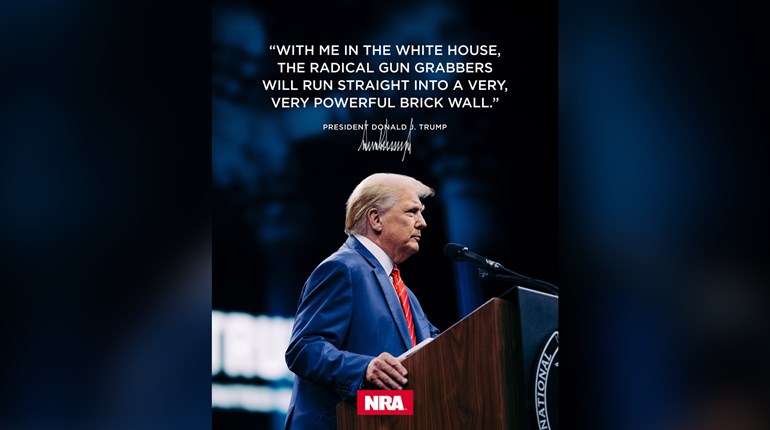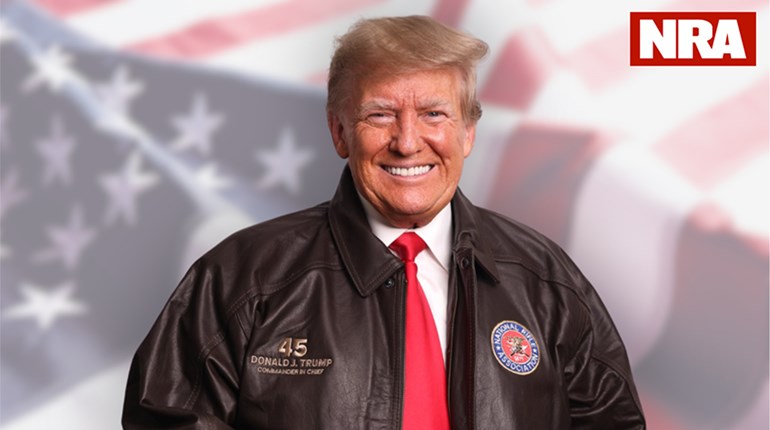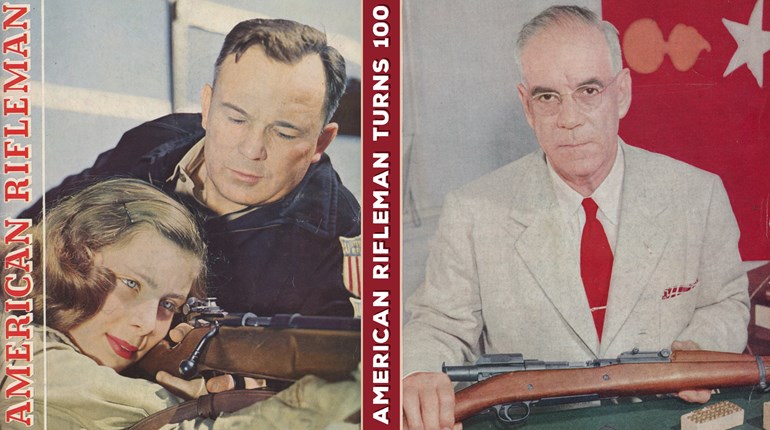
They hate us.
The funny thing is, we don’t hate them.
Consider the following dynamics.
They want to come into our houses. They want to go through our stuff. They want to find contraband, whether it’s an AR-15, an 1877 Colt Peacemaker or a Dr. Seuss book. They want to take these things away from us so that they’ll feel all roasty-toasty inside.
They want more. They want the police involved—and the media. They want us destroyed for harboring certain stuff they don’t like, for reasons they can’t clearly articulate, and for the ideas that stuff represents. They will use social media, old media, TV media, gossip media, any media whatsoever. This makes them even more superior.
And here’s what we want from them: Not a damn thing.
We don’t care how or where they live. We don’t care what or if they believe. We don’t have any interest in controlling anything they do, say or plan. We’re not interested in calling the authorities on them.
If we’re active at all, it’s always defensive. We don’t shame them, demonstrate against them, demand public lists of them. We don’t harass, demonstrate or write endless ill-mannered op-eds criticizing them while preening in the limelight of our own self-decreed morality. We never proclaim that a citizen has a right and an obligation to confront and destroy criminal effort, even if we know he does.
In short, we want them to get the hell out of our faces and go away, and tone down the holier-than-you-guys caterwauling.
What psychiatrist, shorn of bias, would look at these opposing behaviors and not see the first as overly aggressive, hostile, perhaps genuinely disturbed? The same fellow would find the second boringly normal. Then he’d call a member of that group to see how his air-conditioning repair was coming.

But isn’t it nice to dream of a world without them gibbering into a loudspeaker turned up to 11? But they’ll never go away. They’re addicted to moral superiority and they hate the non-believers. They love to hate gun owners. It feels so good.
That hate is part of our everyday reality. We see it on TV, on the internet, in the media and the movies—anywhere the self-designated enlightened gather to celebrate their superiority. We feel it in their eye-rolls, their eagerness to navigate away, their refusal to engage in debate because it’s beneath them. Even in their refusal to get basic facts about guns right.
The reality is that if we were forced to register our guns on a national level, they would applaud.
If we were forced to give up our guns, they would cheer.
If we were arrested and our guns confiscated, they would be ecstatic.
If we were all rounded up and sent to reeducation camps, they would feel vindicated. (But only because they hadn’t figured out that tomorrow would be their day to go to the gulag—or until they found themselves in a real life-threatening situation and hoped for someone to come to their aid.)
Why? There’s no easy answer. It’s too easy to say, “It’s complicated,” even if it is. It’s also too complicated to say, “It’s easy.”
But if we are to survive and achieve some sort of civil calm and normalcy of discourse, it does us well to see where this all comes from and why it’s going to be around a long time.
It begins with history, of which they are willfully ignorant. If you point out to them that many gun-control initiatives started as a tool of that which they pretend to despise most highly—pure white supremacy; they won’t believe you. Tell them what happened in the South in the aftermath of the Civil War, when everyone knew “gun control” didn’t apply to white gentry, but only to the newly freed slaves, different in race and culture, and they yawn, if they’re even still listening.
Tell them the real history of New York’s Sullivan Act of 1911, that it was enacted by a Tammany Hall politician to arrange the arrests of his enemies, and it’s likely they’ll blank out. History, they believe, is for the historians, and, anyway, the mainstream media hasn’t give them the basis to even begin to understand that slice of history.
Logic, as well, has little weight with them. We are a country with over 400 million guns and yet our “gun-violence rate” is astonishingly low, not astonishingly high. It is typically the highest in the areas with the most gun control and those crimes are almost all done with illegal guns. But they put their fingers in their ears when we tell them this.
Show them that in the wake of rare tragedies, gun deaths tend to go down, not up, even as gun sales tend to go up, and they’ll accuse you of lying; they might even get hysterical. (I’ve felt it!)
Facts bore them. Strictly for the unwashed. Tell them it’s not an “assault weapon” and should be properly called a semi-automatic, and their eyes wander. Tell them “high-capacity” firearms have been around since the Civil War (ever hear of a Spencer?). Tell them John M. Browning designed the Model 1911 semi-automatic pistol in the first decade of the twentieth century and watch how fascinating their shoes become. Tell them Baby Face Nelson used a semi-automatic pistol in the 1930s and learn they never heard of Baby Face Nelson.
Tell them for all the endless buzz about “gun violence” in America, it is nowhere near the top in leading causes of death, and they profess not to understand the meaning of the word “rate.”
In all, it’s like trying to explain the difference between a revolver and a semi-automatic or why there’s no decimal point before 9 mm, while there is in front of .38 Special, or, God help you, what “gauge” means and where it comes from. Forget it, Jake. It’s anti-gun town around here.
Without a doubt, there are false-media narratives at the root of their irrationality. The first is the view that the gun is an emblem of toxic masculinity. While it’s true that the gun was developed by men for what was then viewed as men’s work—protecting and providing—it’s equally true that many women are attracted to the defensive use of guns and many women become superb shots. Memo to the Left: The gun doesn’t care which sex the person shooting it is. Kim Rhode, Lena Miculek and Kirsten Joy Weiss can shoot better than I can, even in my dreams. The old saying demands revision: “God created woman. And Col. Colt made her equal.”
Then there’s the play of race, which is used on this topic just as it is on nearly every topic in America today. Why must this civil-rights issue ever be viewed through the prism of race? Most self-defense shootings suggest a different dichotomy: the criminal against the victim. Irrespective of race, most gun-control schemes have the loathsome attribute of rendering our most-vulnerable citizens even more vulnerable.
Class is another big player in the game. Many gun folks have traditionally been practical, focused, accustomed to and in full enjoyment of working with their hands. They can lay pipe, install windows, fix refrigerators, harvest corn and build cities. They are blue-collar and proud of it. The elite, by contrast, often contribute something “higher”—that is, nothing physical, but cognitive products like “creativity,” as in entertainment, or “profit,” as in the stock market. They never get their hands dirty. And, though relying desperately upon the people who can do stuff whenever things go bug-eyed, they routinely detest the “lower classes” as crude, unironic, NRA members, bowlers, NASCAR fans who don’t even know what a Negroni cocktail or Aviation American Gin is. They see guns as symptoms of social inferiority.
But even all that is based on a media narrative, as today, Americans of every type and occupation own guns. This is proper, as this is a civil right we all enjoy. Why can’t they appreciate that?
Of course, all of this fits into a larger context and is symptomatic of an overarching pathology of the Left, evident in most of its other initiatives. They fear force. Everywhere, always and 24/7/365, their instinct is to yield. They fear force in foreign policy; they fear it in immigration policy; they fear it in domestic policy; they fear it in law enforcement. They see no such thing as righteous force.
The police officer, not the perpetrator, will always be the suspect, as far as they are concerned. The border patrolman, not the illegal immigrant, will always be the culprit. The soldier, and not the guerilla, will always be the war criminal. When confronted, they believe accommodation is preferable to action. For them, it’s always Munich—and if Munich evolves into war, as Munichs do, it won’t be their children on the front lines.
But there is one thing they fear more than anything. It’s not quite us because they know us to be reasonable, decent and law-obeying. We won’t get in their faces and bathe them in spit. What they fear, however, involves us. They don’t fear we’ll do something wrong with the gun. They fear we’ll do something right.
They hate heroes. That’s because they know it is not in them to be one. So their response is to declare heroism defunct. It’s obsolete. It’s tainted by racism, sexism and other sins. And the gun is entwined with American notions of heroism, both from history and popular culture.
 They know that if you defend your life, your family, your store, or your car from a determined armed force with your own armed force, you have done something most people would view as heroic, even if the media will not say so. They want to obliterate the entire concept.
They know that if you defend your life, your family, your store, or your car from a determined armed force with your own armed force, you have done something most people would view as heroic, even if the media will not say so. They want to obliterate the entire concept.
Because righteous force does the one thing they hate most of all. It makes them feel bad about themselves. They live entirely in a universe of feelings; not logic, action and accountability—even our potential actions, even our symbolic actions. This fear and self-loathing forces them to confront the totality of their abandonment of the duty of protection, which then tosses out any implicit endorsement of heroism. They don’t want anyone equalized courtesy of Col. Colt. They can never do that. It’s not in them and they hate that it just might be in you.
They hate us for being what they can never be.
Stephen Hunter is a Pulitzer Prize-winning critic, author of the must-read Bob Lee Swagger series of novels and the author of many other books.


































